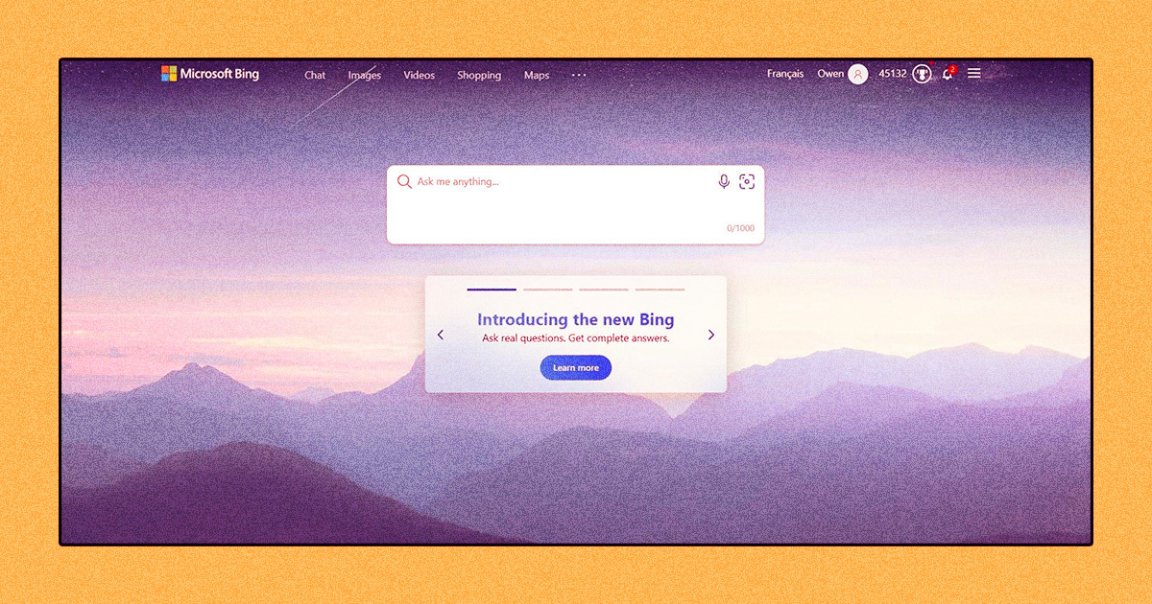
Sudden Appearance
After reports that Microsoft had plans to integrate OpenAI’s ChatGPT chatbot into its Bing search engine, we may have now gotten an unintentional sneak peek.
According to The Verge, it appears an early version of the chatbot integration accidentally went live on Bing, before disappearing almost as quickly as it cropped up.
A student designer on Twitter by the name of Owen Yin tweeted that the integration “just appeared” for him, and that the search bar was replaced with “a composer for natural language questions.”
Yin told The Verge that he stumbled across the find because Bing is his home page on Microsoft’s Edge browser.
“After a couple of minutes it stopped working,” he added. “Jaw dropped when I realized what I was looking at!”
And fortunately, he has receipts. While The Verge notes that it’s unable to verify the authenticity of the leaks, it did spot two other tweets that seem to corroborate Yin’s findings.
Goodbye, Google?
If the leaks are to be believed, next to the “All” tab which returns links like a traditional search engine, is a new “Chat” tab.
“Welcome to the new Bing,” the tab reads, “your AI powered search engine.”
Along with three suggestions for types of questions to ask the chatbot is a disclaimer that reads: “Bing is powered by AI, so surprises and mistakes are possible.” As The Verge notes, this is pretty much the spitting image of the regular ChatGPT UI.
The AI-bolstered Bing is also capable of citing its sources, according to an in-depth writeup from Yin. That’s a big deal, since without direct links, it defeats the point of a bot doing the legwork if you, too, need to cite the information, like for a paper.
In addition, interactive AIs frequently struggle to pinpoint exactly where they got their information. See: AI image generators, which are accused of plagiarizing existing artworks without crediting the original, human artists.
It’s unclear when this is supposed to officially go live — assuming its authenticity, that is — but it could give Microsoft a long-awaited leg up in the search engine department, as Bing has infamously and hilariously been stuck in Google’s shadow for well over a decade.
In particular, the chatbot functionality could give Google’s Knowledge Graph — that box that appears at the top of search results that attempts to return an answer to factual questions like “how far is the Sun?” — a run for its money.
More on ChatGPT: ChatGPT’s Explosive Popularity Makes It the Fastest-Growing App in Human History